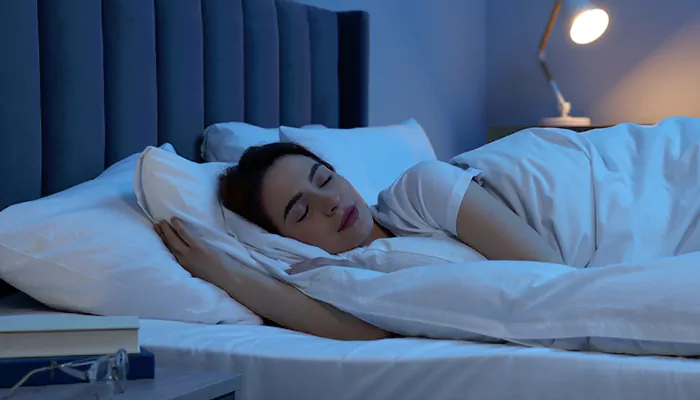Different sleeping positions and how it affects your health
Sleeping on your side or back or on your stomach can make a difference in terms of symptoms of sleep apnea, snoring, neck and back pain, and other medical conditions.
- Shriparna
- 24 May, 2025
- 2 mins ago

Different sleeping positions and how it affects your health
Sleeping on your side or back or on your stomach can make a difference in terms of symptoms of sleep apnea, snoring, neck and back pain, and other medical conditions.
It is a long day and you crash into the bed, with giving a though about your sleeping position and environment and instead of waking up refresh you are all sore. Sleeping positions has a lot to talk about your health.Sleeping on your side or back or on your stomach can make a difference in terms of symptoms of sleep apnea, snoring, neck and back pain, and other medical conditions. Find out what your sleep position affects your health.
Sleeping on Your Stomach
As a kid, sleeping in your stomach is very common. But as you grow up this habit can cause health issues like back ache. Sleeping on your stomach puts a strain on the back and neck. Since the middle part of the body is the heaviest part, keeping your head in an elevated position can cause spine to overarch leading to numbness or a tingling sensation in the back. Also when you turn your head to one side in this position, blood circulation gets restricted.
If you want to continue sleeping in this position, keep the neck straight and prop only the forehead on the bottom edge of the pillow. In this way, the spine will be in a more neutral position while allowing room to breathe freely. You can also keep a pillow on the lower side near pelvis to neutralise the pressure on lower back.

Sleeping on your back
This is a healthy way of sleeping, as keeping your back flat on the bed enables the spine to stay in a neutral position. By elevating the head with a pillow, it can also be helpful in reducing problems associated with acidity.
However, sleeping on your back can cause snoring or obstructive sleep apnea. To modify your sleeping position talk to your doctor. You can also use a low pillow to support the neck and a medium-sized pillow for supporting the knees. This will help reduce discomfort and strain on the lower back.
Fetal position
Sleeping in fetal position can be comforting but not recommended as the extreme curvature of the spine can strain discomfort in back and neck. When you curl your body on that position, you also limit the space for the diaphragm and restrict breathing.
Sleeping by your side
This the best position to sleep as recommended by physicians. . With the right mattress, the spine remains elongated and relatively neutral while on your side when you use a pillow, hence preventing undue neck , shoulder and back pain.










